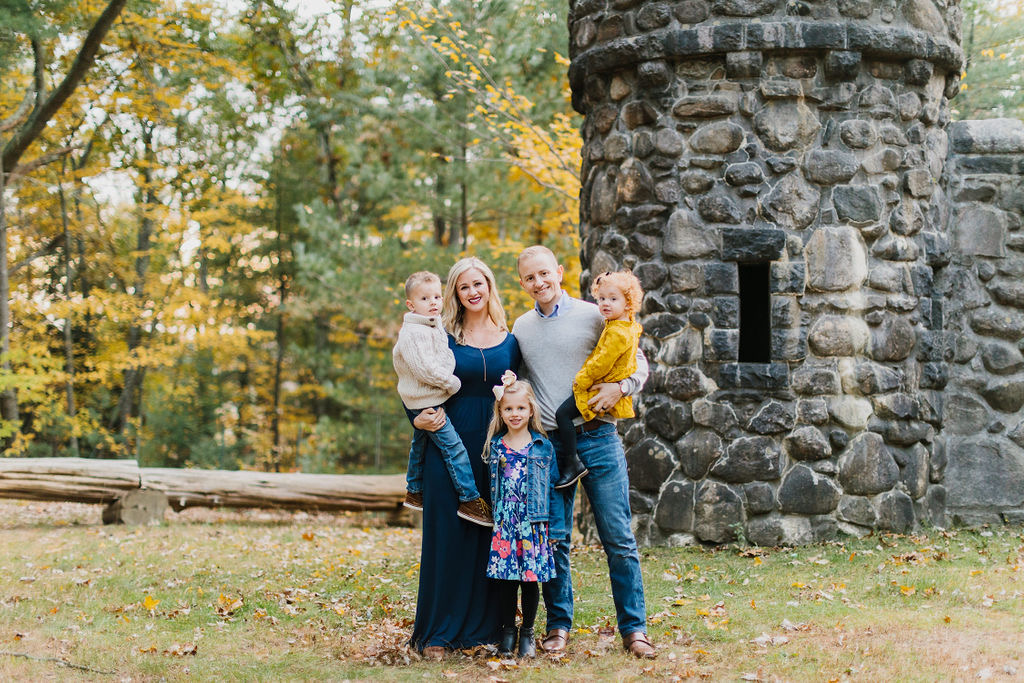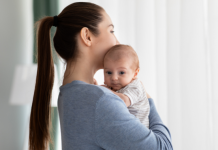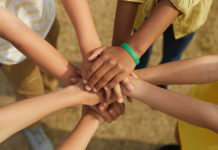
Loss and difficult events are a natural part of life. Unfortunate and difficult, but normal. Not all children will experience life-altering events at a young age, but they will at some point in their lives.
My children were on the rarer side of the spectrum when they experienced loss first hand at a young age: their dad, at ages 5, 4, and 2. The pain was unexplainable, unfathomable, unspeakable.
Their dad died four years ago today. When I was told, it was the actual worst moment of my life. The next worst moment was telling our children. Because of the unfortunate events put upon our family, I’ve been a student of grief and how to help my kids.
Grief and Kids
Speak in real terms (daddy died), not euphemisms (passed away, no longer with us, etc). Children on the younger side, especially, have no idea what those euphemisms actually mean. We mean well trying to soften the information by avoiding the “D” word, but you are actually doing them a disservice.
Encourage emotions. Again, another one that might seem counterintuitive. Let them know it is perfectly fine and normal to be sad, angry, or confused. Kids pretending to be ok when they really aren’t will not help them through their grief. I am not suggesting you tell them to feel a certain way, just validate it when they express it.
Show yourself being emotional. This will help them know their emotions are valid. If you are telling them the loss is a sad thing, yet never show emotion about it, they may try and build a wall because they don’t see the example. There is a line between being so emotional and heavy for the child they feel the need to carry or worry about you, so do so delicately.
Speak of them often. Just because someone died doesn’t mean they have to be gone from their life forever. You may hesitate, thinking you will stir up wounds, but you are helping them remember. Yes, it may bring up emotions, but it is so healthy. And the younger they are, the more they will need your help to remember. Maybe they don’t want to talk when you bring them up, and that is fine (give space when they ask for it) but your presence in their grief shows them you are a safe place. It is ok to remember ____ and you are there to help. Something I did shortly after Marcus died was to create memory books of him and each child. It is one of their favorite things and has been a hugely helpful tool in helping them remember.
Understand there will be a certain amount of acting out and it is very normal. These kids just had their world turned upside down. Nothing makes sense, everything hurts, and the emotions they are feeling are complex and BIG. Give them grace.
I firmly believe the more the kids feel safe to talk about their emotions, the better they can process. There is a lot of talk in our house about talking through our emotions when we have them versus stifling and pretending things are ok. When we do this, the emotion (let’s call it sadness) morphs. Sadness can turn to anger, which leads to lashing out. The more we talk through our emotions the more we allow the feeling to be validated and acknowledged instead of festering and becoming something worse.
When they get a little bigger we talk about how emotions are such a gift from God, but we are to be good stewards of them. And just because we feel them doesn’t give us permission to hurt others. We are to be in control of our emotions and can decide what we should do with them.
Unsure of what to do? Just show up. Be there, even if you can’t speak words. Read them a book on grief (listed below). Put them in therapy.
Best books for young grieving children
Hear me clearly on this. Put your oxygen mask on first. I am still sorting through my grief and we are on year four. I am back in therapy. Please, take care of yourself so you can take care of them.
















